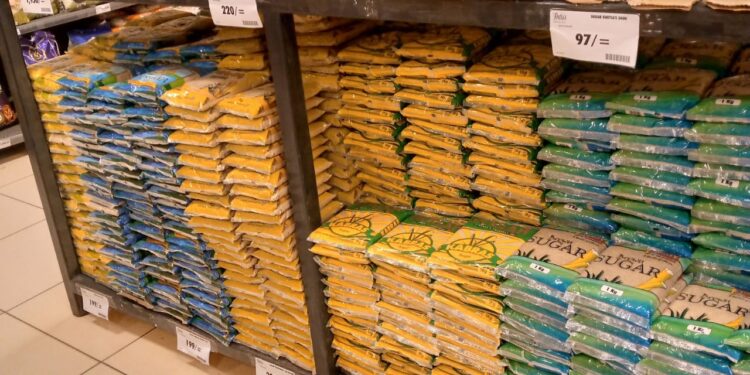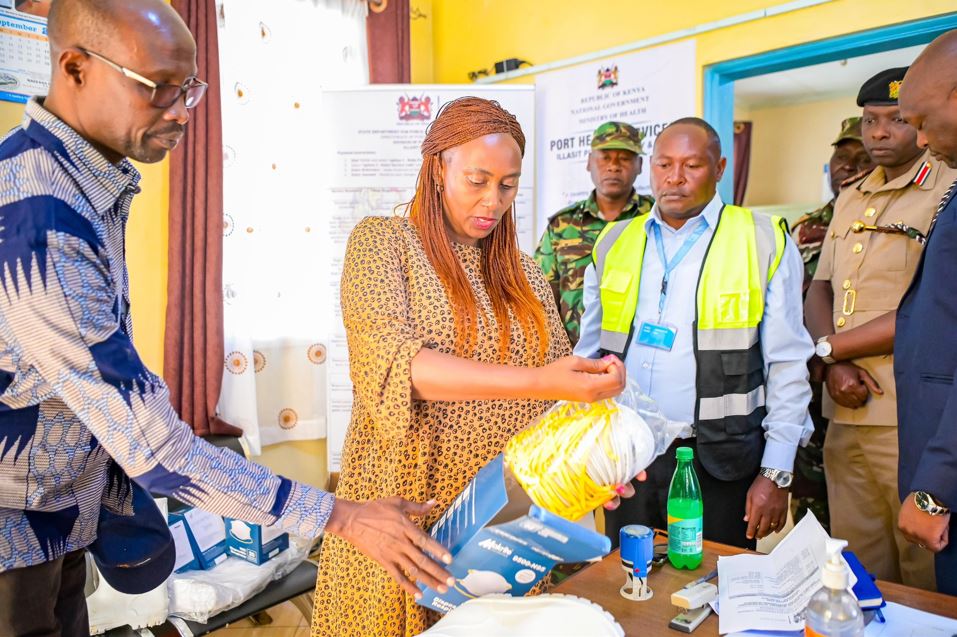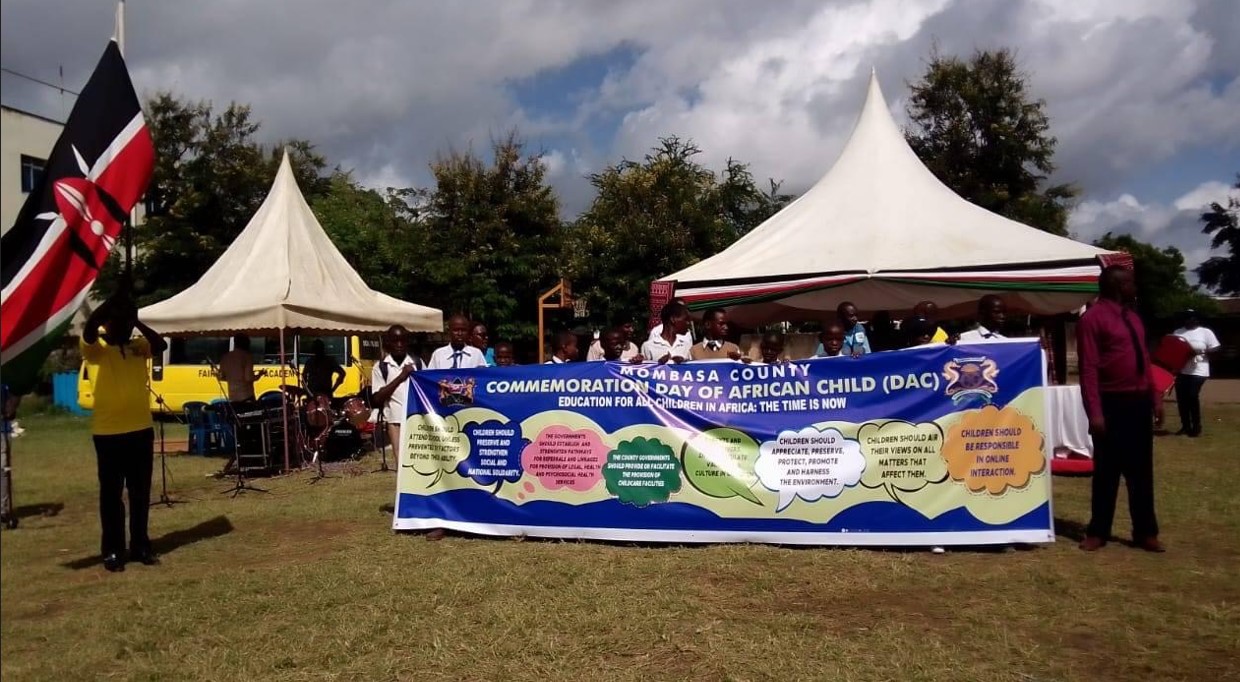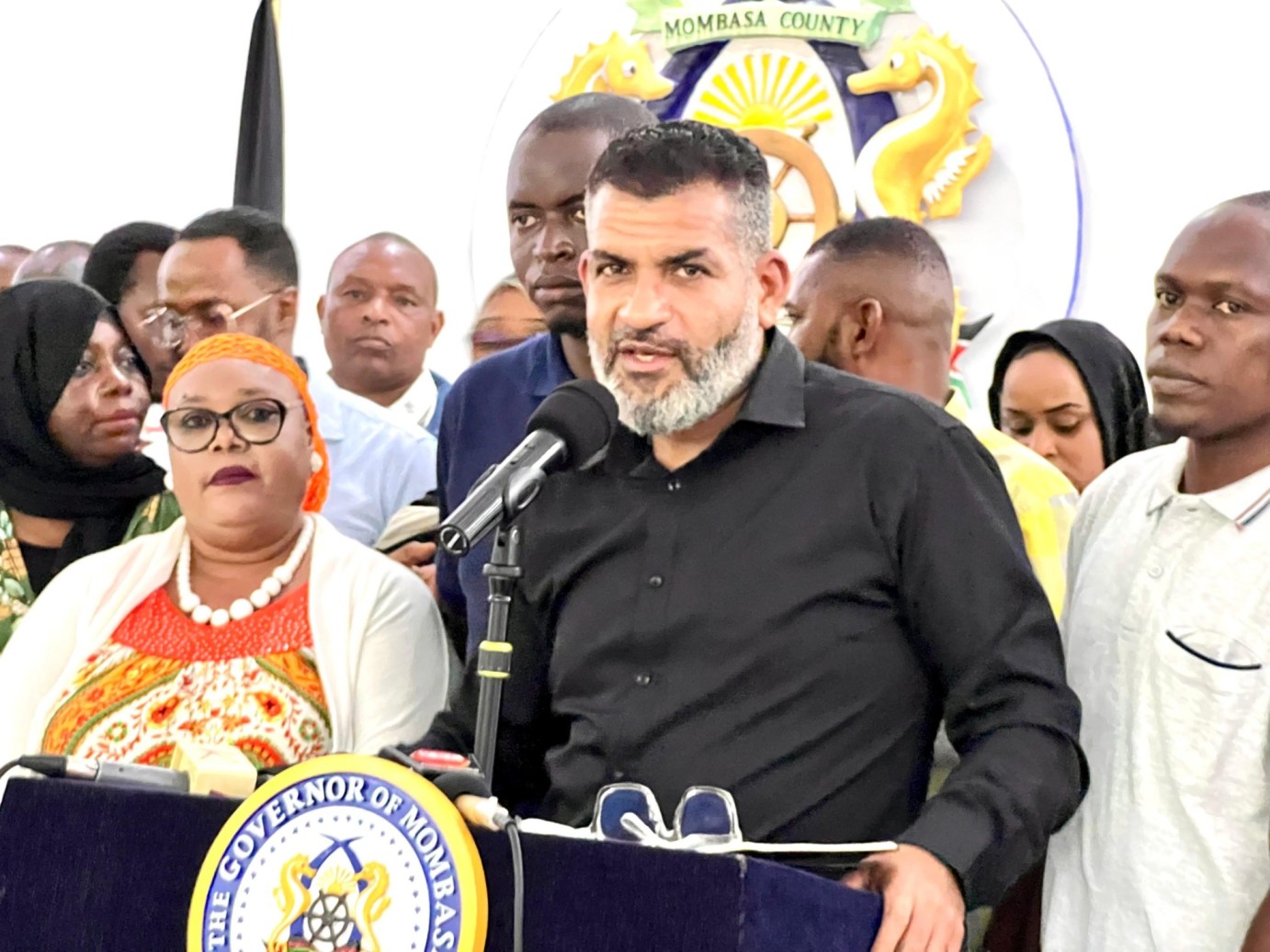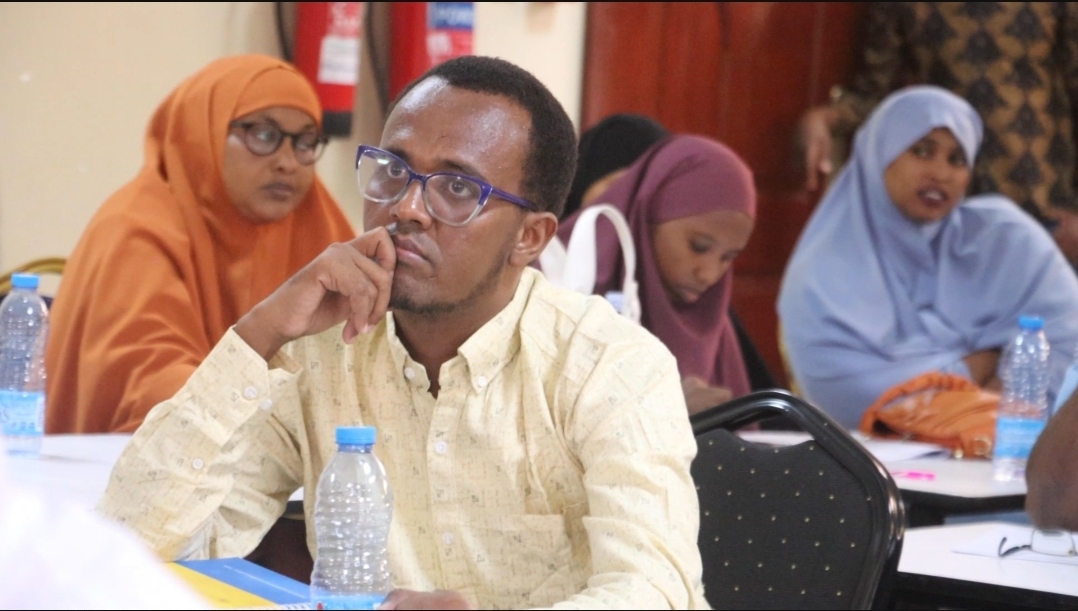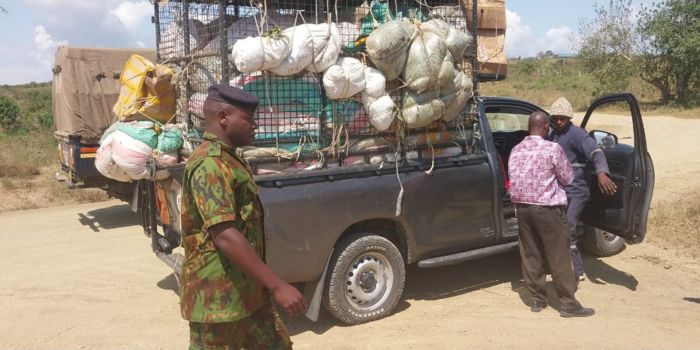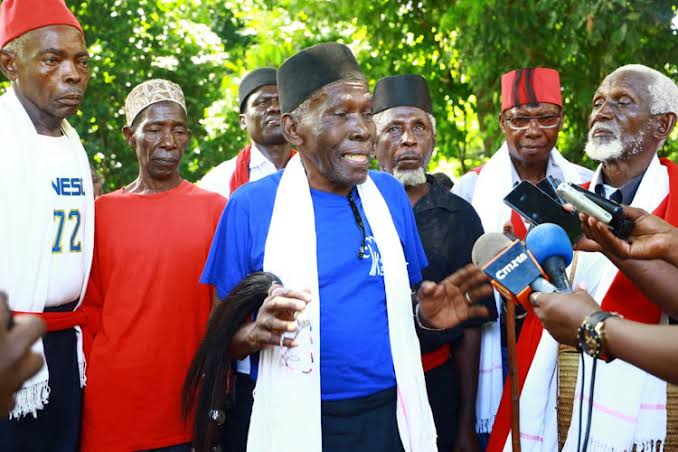Explainer: What do experts say about consumption of muguka?
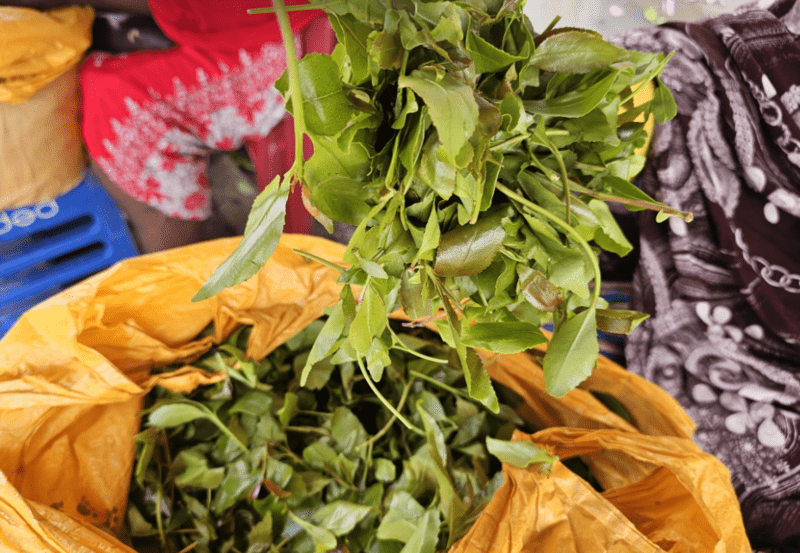
By Maureen Kinyanjui |
While many users view chewing muguka as a harmless activity, scientists warn that its widespread use could pose significant risks.
As the ongoing debate over muguka intensifies, several counties in Kenya are considering banning the substance due to its associated health and social issues.
Muguka, described by the Kenya Agricultural and Livestock Research Organization as a variety of khat (Catha edulis), has become a contentious topic.
Keep reading
While many users view chewing muguka as a harmless activity, scientists warn that its widespread use could pose significant risks.
In a 2021 study conducted by the Kenya Medical Research Institute (KEMRI), researchers discovered a troubling correlation between frequent muguka use and the development of psychotic symptoms.
The study, which focused on rural areas where muguka is commonly chewed, found that users experienced increased instances of hallucinations, paranoia, and other mental health issues.
"Our findings suggest that regular muguka use could significantly impair mental health, especially among young adults," said Dr. Jane Mwangi, a lead researcher on the project.
The World Health Organisation (WHO) has also expressed concern over the health impacts of muguka.
According to a 2020 WHO report, the stimulant effects of muguka can lead to insomnia, increased heart rate, and a high potential for addiction.
"Prolonged use of muguka may result in dependency, which can disrupt daily life and lead to other health complications," reads the report.
The stimulant properties of muguka, similar to those of its cousin khat, can create a cycle of dependency and mental health issues that are difficult to break. Beyond health issues, the social and economic implications of muguka are equally significant.
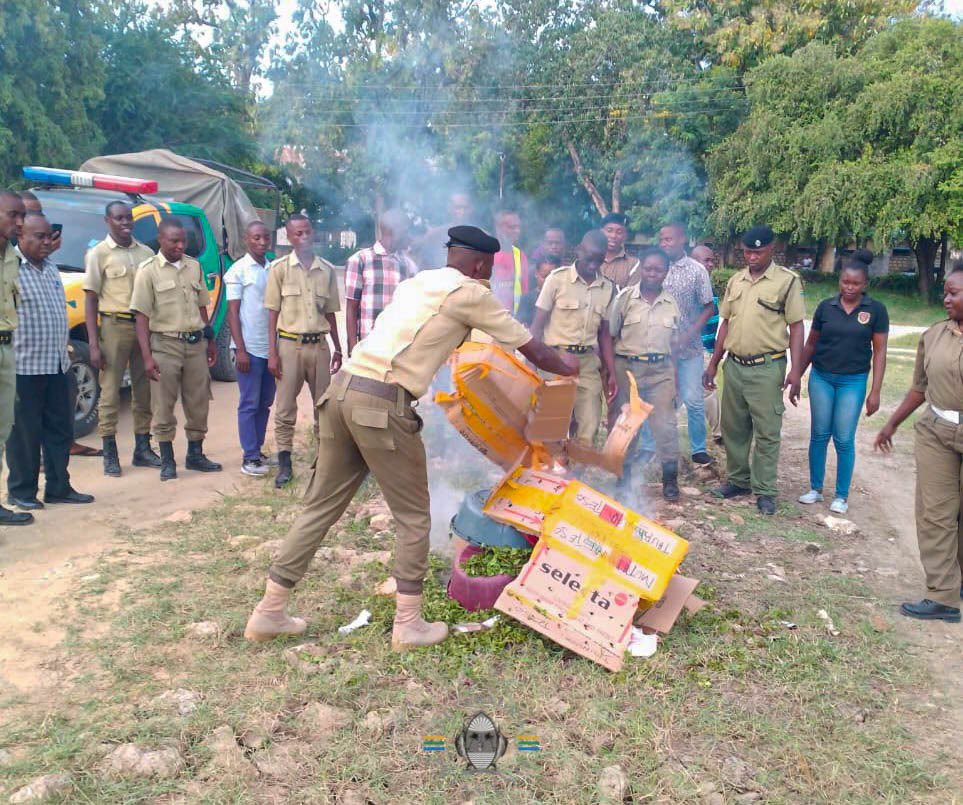 Kilifi inspectorate officers burn confiscated boxes of muguka following the directive from Governor Gideon Mung’aro. (Photo: Kilifi County)
Kilifi inspectorate officers burn confiscated boxes of muguka following the directive from Governor Gideon Mung’aro. (Photo: Kilifi County)
A 2020 study published in BMC Psychiatry highlighted that many users spend a substantial portion of their income on muguka, leading to severe financial strain, particularly in low-income households where resources are already limited.
Neglect of essential needs
This spending habit often leads to neglect of essential needs, exacerbating poverty and economic instability in affected families.
Professor Samuel Ochieng, a social scientist at the University of Nairobi, emphasized the broader social consequences of muguka use.
"Muguka chewing sessions often take up a lot of time, reducing productivity and contributing to absenteeism in workplaces and schools. This not only affects the individual users but also has a ripple effect on their families and communities," he explained.
In response to these findings, experts are calling for increased public awareness and the implementation of support services to help users reduce their consumption.
A 2019 pilot study published in BMC Public Health stated that structured community interventions significantly helped participants reduce their khat consumption.
These interventions often include education on the risks of muguka use and support systems for those seeking to quit.
"Education and support are crucial," emphasized Dr Mwangi.
"We need to inform the public about the risks of muguka and provide resources for those who wish to stop using it." Public health campaigns, similar to those used for other substance abuse issues, could be effective in curbing muguka use and mitigating its impacts.
Muguka ban
The Muguka debate came after Mombasa, Taita Taveta and Kilifi counties last week banned entry, transportation, distribution, sale, and use of muguka within their boundaries.
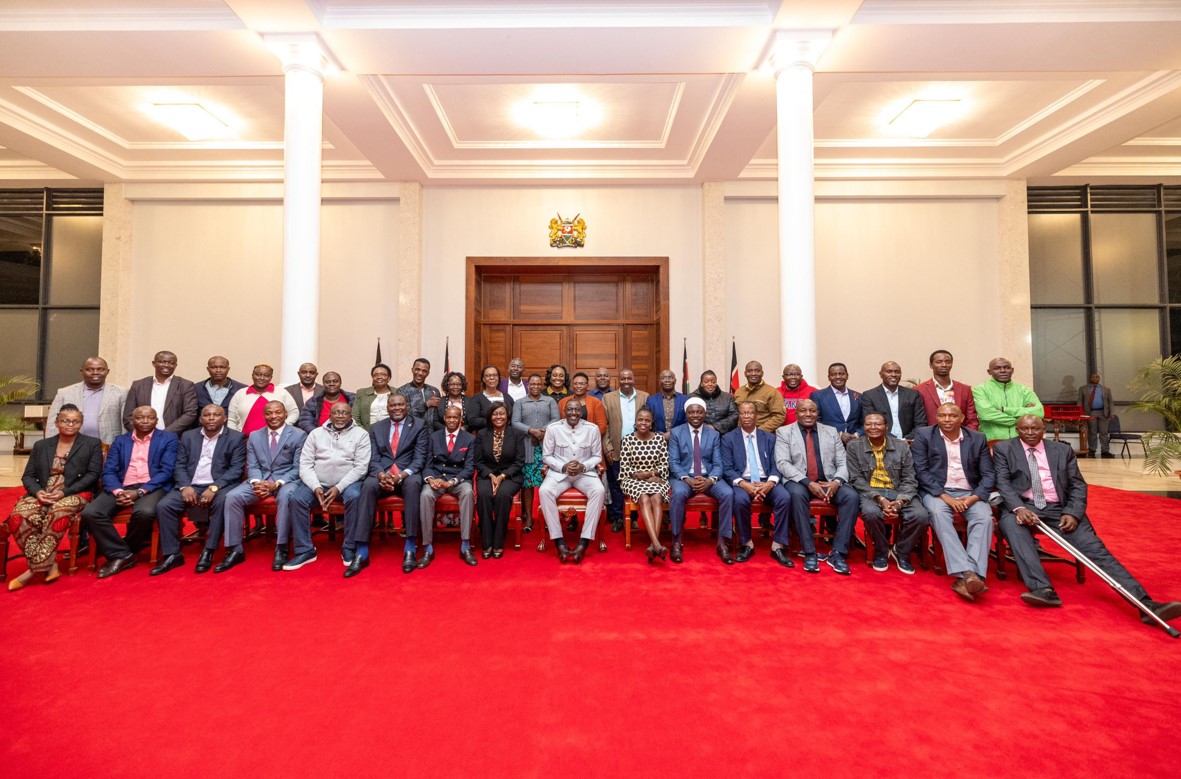 President William Ruto is pictured with Embu County leaders at the State House in Nairobi on May 27, 2024, during a meeting on the muguka ban by coastal counties. (Photo: PCS)
President William Ruto is pictured with Embu County leaders at the State House in Nairobi on May 27, 2024, during a meeting on the muguka ban by coastal counties. (Photo: PCS)
The Embu County government subsequently said it would move to court to challenge the ban in the three counties.
What followed was that President William Ruto met with Embu leaders at State House on Monday and later announced that the ban imposed on muguka in the coastal counties was null and void.
The Head of State pointed out that muguka is a scheduled crop in accordance with the Crops Act 2013 and the Miraa Regulations 2023.
The Miraa Regulations 2023 were passed by the National Assembly and the Council of Governors in concurrence of the council of governors.
Ruto added that the two pieces of legislation were passed by the National Assembly and the Senate with the concurrence of the Council of Governors
However, on Tuesday The High Court in Embu temporarily suspended the executive orders banning the sale, distribution, and consumption of muguka in Mombasa, Kilifi and Taita Taveta Counties until a case on the same is heard and determined.
While issuing the verdict, Lady Justice Lucy Njuguna certified the petition, lodged by the Embu County Assembly and Kutherema Muguka Sacco Society as urgent further adding that the conservatory orders will stay valid until July 8, 2024.
The President also stated that Governors from Mombasa, Kilifi and Taita Taveta have agreed to attend a stakeholders meeting addressing concerns raised on the sale and use of muguka after he engaged them.
The meeting will be convened by the Ministry of Agriculture and Livestock and attended by stakeholders in order to address concerns raised on the sale and use of muguka.
Also, the Head of State, said he will convene a meeting of political leaders of the affected counties next week.
Reader comments
Follow Us and Stay Connected!
We'd love for you to join our community and stay updated with our latest stories and updates. Follow us on our social media channels and be part of the conversation!
Let's stay connected and keep the dialogue going!


